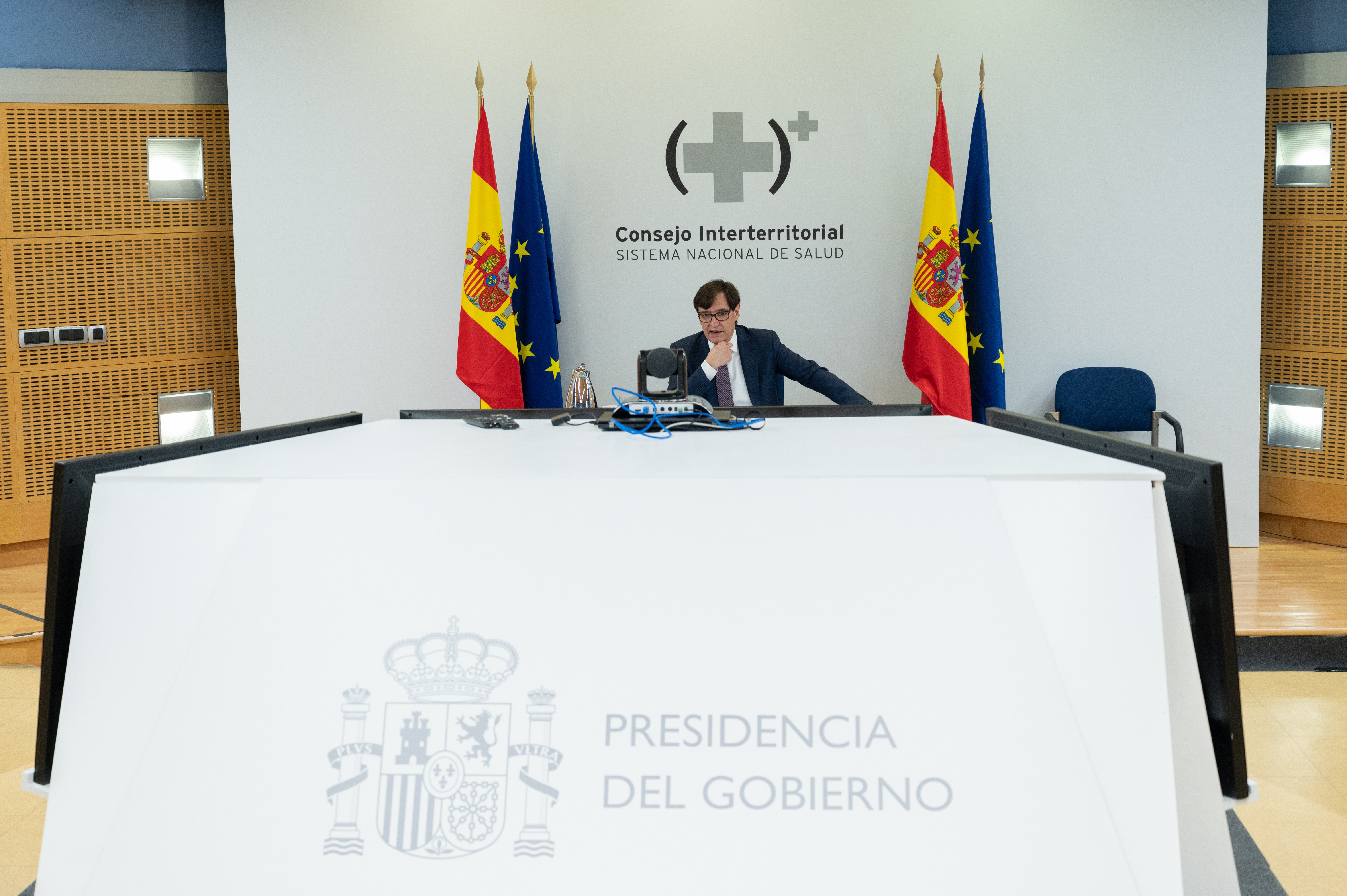The first doses of the Pfizer-BioNTech coronavirus vaccine will arrive in Spain this Saturday, and vaccination will begin across the state on Sunday. Today, health minister Salvador Illa has given some details. Spain will receive 4.6 million doses of Pfizer in the next twelve weeks, which will allow some 2,295,000 Spaniards to be immunized. Around 350,000 doses will arrive at the beginning of each week. But he didn't go into detail on the exact quantity that each autonomous community will receive, although the governments do know. He made it clear that the sharing out has been done "equitably" based on the number of elderly people in care homes, the priority group. The first package will arrive in Guadalajara, in the Castilla-La Mancha region, from where it will be distributed. The first dose will also be administered in that city.
"Sunday is the beginning of the end of a very tough process," the health minister told a press conference after meeting with autonomous community health representatives. In the meeting, the data had been set out: in three months 4,591,235 doses will arrive, enabling the vaccination of 2,295,000 people. Deliveries will take place at the beginning of each week, about 350,000 at a time. These figures only taking into account the Pfizer vaccine, and not the Moderna vaccine, which could receive approval from the European Medicines Agency on 6th January. Thus, if its gets the green light, the supply would increase.
There will be no photographs of presidents or ministers getting jabbed. The first people vaccinated will be a resident and a staff member at a nursing home in Guadalajara, in line with the criteria of priority groups established by the Spanish government's vaccination plan. But when asked how many people could receive the vaccine this Sunday, on the first day of the campaign, Salvador Illa did not want to commit himself. All communities will need to complete their preparations. The logistics are a state secret. The first shipment will arrive in Guadalajara, but subsequent ones will be shipped to the destinations indicated by each autonomous community.
Nor did the minister want to reveal any details on how many doses each autonomous community will receive, but he said that the communities already know. In this regard, he guaranteed that it has been done in an "equitable" way, using "data sources" to quantify the population weighting of the priority groups, in this case, residents and staff of care homes.
The vaccination plan
The vaccination plan approved by the Spanish government divides the process into three phases and fifteen population groups. In the first phase, from January to early March, there will be an "initial supply" of vaccines. It will be directed towards about two and a half million Spaniards in the four top priority groups:
1. Elderly residents of care homes
2. Personnel in residential care homes
3. Health care personnel
4. People with serious disabilities, not institutionalised
In the second stage, which will run from March to early June, a "gradual increase" in the arrival of vaccines is expected. The third and final phase, which will continue "during the summer months", will seek to vaccinate the entire Spanish population. The vaccination of the other eleven groups will take place in these two stages. The groups are as follows:
5. People at risk, including all those over 64 years of age
6. People who live or work in communities in closed environments
7. People vulnerable due to their socio-economic situations
8. Workers in essential sectors
9. All teaching staff
10. The general population of children, up to age 16
11. The adolescent population, 16 and over
12. The entire adult population
13. Residents in areas of high incidence or with potential for outbreaks
14. Pregnant women and breastfeeding mothers
15. People who have already had Covid-19 and have antibodies

